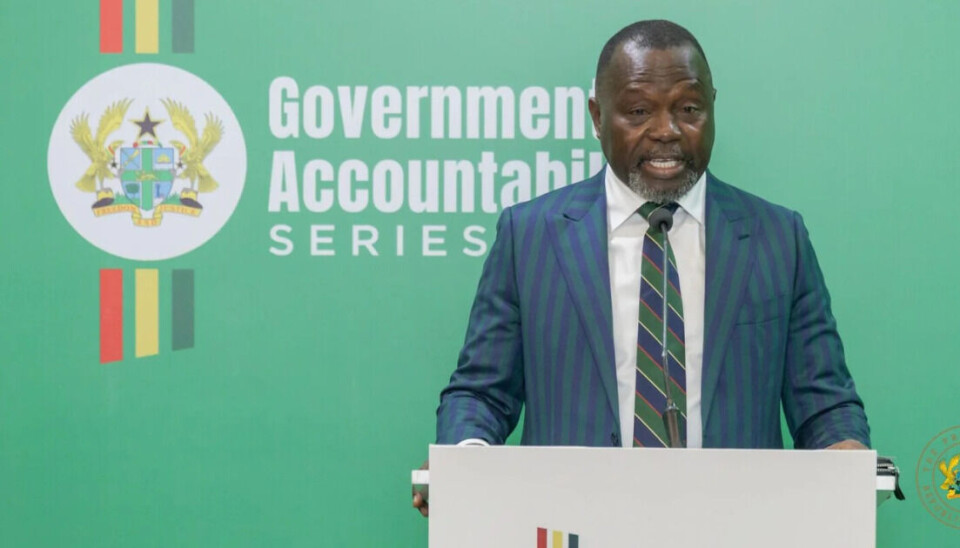Copyright : Re-publication of this article is authorised only in the following circumstances; the writer and Africa Legal are both recognised as the author and the website address www.africa-legal.com and original article link are back linked. Re-publication without both must be preauthorised by contacting editor@africa-legal.com
Ghana’s long-awaited overhaul of restrictive pathway to bar will create a more inclusive profession

Various stakeholders from student bodies to lawyers to the former head of Ghana’s School of Law have come out in support of the Attorney-General’s announcement on Monday of sweeping reforms to Ghana’s legal education system
On Monday, Ghana’s Attorney-General and Minister for Justice, Dr. Dominic Ayine,
announced sweeping reforms to the country’s legal education system that aim to create a more inclusive legal profession while abolishing a monopoly dating back to the 1950s that in recent years has left 70% of qualified LLB graduates “stranded”.
“We are shifting from exclusion to inclusion,” said the Attorney General during the Government Accountability Series in Accra on 28 July. “Our aim is to ensure that all qualified LLB holders have a clear and merit-based path to becoming lawyers.”
Currently, Ghanaian law graduates must apply for limited places at the Ghana School of Law (GSL) and complete a two-year professional law course, followed by the Ghana Bar Examination. Established in the late 1950s in the immediate aftermath of Ghana gaining independence, when there was only one local university offering LLB degrees, that system now sees the majority of Ghana’s law graduates left stranded .
Coming out in strong support of the Attorney-General’s proposed reforms, the Private Universities Students’ Association of Ghana (PUSAG) noted that each year thousands of qualified LLB graduates cannot gain entry to GSL. For the 2024 admissions cycle, only 1,441 out of 5,000 applicants made the cut.
Under the Legal Education Bill, set to go before Cabinet in August, the restrictive GSL system will be abolished, and accredited Ghanaian universities will be able to offer their LLB graduates a one-year Bar Practice Programme that would prepare graduates to sit a standardised national bar exam for admission to legal practice.
The long-awaited reforms will bring Ghana’s pathway for new lawyers more in line with international best practice, across law and other trusted advisory professions.
“It will be like what the accountants do,” said the Attorney General. “Once you qualify to write the examination, the Chartered Institute of Accountants administers the exam, and anyone who passes becomes a chartered accountant. That’s what’s going to happen to expand legal education in the country.”
"This is a defining moment,” says PUSAG National President Ibrahim Issah, hailing the Attorney-General’s announcement as a major victory for equity, inclusion, and access to justice. “The doors to the legal profession are finally being opened to every qualified Ghanaian, regardless of institution.”
While expressing “deep gratitude” to former GLS Director Kwaku Ansa-Asare, who has been a supporter of PUSAG and vocal proponent of such much-needed reforms, PUSAG urged Ghanaian politicians to work collaboratively, transcending partisan interests, to ensure the successful and timely passage of the Legal Education Bill and take swift action to bring these vital changes into effect.
Roxanne Amihere, Esq, a bilingual Ghanaian lawyer now working in the UK, says the proposed reforms resonate deeply, having experienced both the GLS system and the more “structured, transparent, and inclusive” pathways to practice in the UK.
“The entrance exam system in Ghana has long served as a gatekeeper, often turning away brilliant, qualified students — not due to lack of ability, but because of a restrictive and centralised structure with limited capacity,” shared Amihere on LinkedIn. “I’ve seen firsthand the emotional and professional toll it has taken on many passionate young people with a genuine desire to serve the legal system.”
She hopes the reforms will be implemented effectively, thereby unlocking access for thousands of capable LLB holders, empowering universities to deliver practical legal training, creating a merit-based, standardised pathway to the Ghanaian Bar, and elevating the global competitiveness of Ghana’s legal profession
“To every law student, aspiring lawyer, and legal educator in Ghana — this is your moment. Let’s stay informed, engaged, and ready to contribute meaningfully to what could be the dawn of a more accessible and equitable legal future.”
